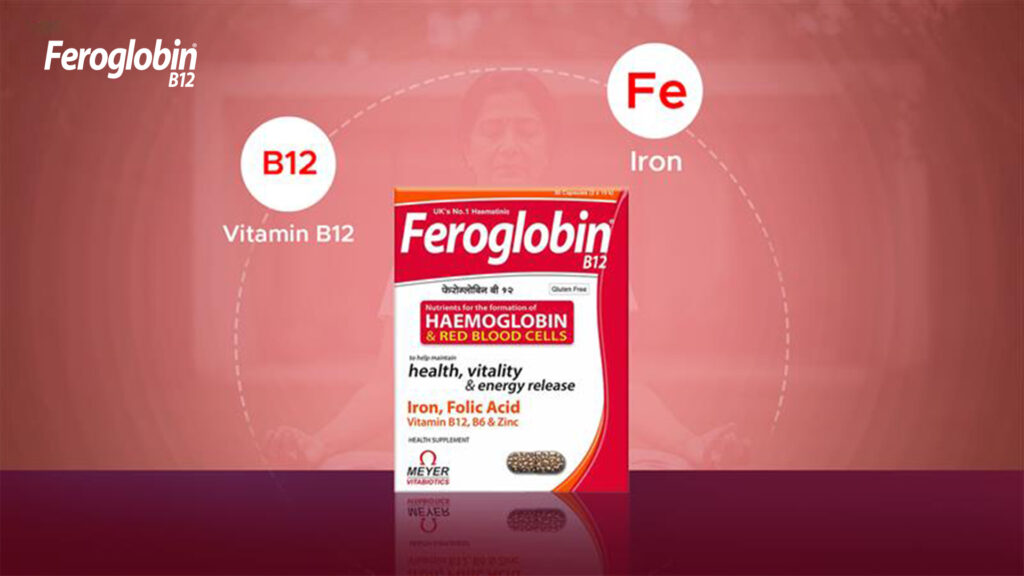Pregnancy Nutrition: Nurturing Your Health and Baby’s Development

During pregnancy, maintaining good nutrition is crucial for the health of both the developing fetus and the mother. Certain nutrients such as Protein, Calcium, Iron, and Folic Acid become even more essential during this period.
Proteins, being a vital macronutrient for growth, are made up of chains of amino acids. Amino acids, the building blocks of proteins, play a critical role in metabolism.
What are Amino Acids?
Amino acids are the fundamental building blocks of proteins, which are essential for the structure, function, and regulation of the human body. These organic compounds contain carbon, hydrogen, oxygen, and nitrogen atoms, along with other elements in some cases. There are 20 standard amino acids that serve as the foundation for the vast array of proteins found in living organisms.
Each amino acid consists of a central carbon atom (the alpha carbon) bonded to an amino group (-NH2), a carboxyl group (-COOH), a hydrogen atom, and a unique side chain (R group). It is the specific R group that distinguishes one amino acid from another, giving them their distinct properties and functions.
Amino acids link together through peptide bonds, forming polypeptide chains that fold and interact to create functional protein structures. These proteins serve as enzymes, hormones, antibodies, transporters, and perform countless other crucial roles in maintaining the body’s health and supporting various biological processes.
Amino acids are classified into two groups:
Essential Amino Acids: These cannot be produced by the body and must be obtained through food sources. Examples include Isoleucine, Leucine, Lysine, Threonine, Tryptophan, Histidine, Methionine, Valine, and Phenylalanine. Foods like chicken, fish, eggs, milk, cheese, nuts, grains, and soybeans are rich sources of these essential amino acids.
Non-Essential Amino Acids: These amino acids are not required to be obtained directly from the diet as the body can synthesize them from essential amino acids or through the breakdown of proteins. Examples include Aspartic Acid, Glutamic Acid, and Glycine.
The Importance of Proper Nutrition During Pregnancy
Proper nutrition during pregnancy is of paramount importance as it directly impacts the health and development of both the mother and the growing fetus. This critical period demands an increased intake of essential nutrients to meet the specific demands of pregnancy, support fetal growth and development, and ensure the well-being of the mother. Let’s delve deeper into the significance of various nutrients during pregnancy and their impact on maternal and fetal health.
Folic Acid:
Folic acid, a B-vitamin, plays a crucial role in preventing neural tube defects in the developing fetus. It is essential for the proper formation of the baby’s brain and spinal cord during the early stages of pregnancy when the neural tube is forming. Health authorities recommend that women of childbearing age consume an adequate amount of folic acid even before conception occurs, as neural tube defects can develop in the first few weeks of pregnancy when a woman may not even be aware that she is pregnant. Foods rich in folic acid include leafy greens, legumes, citrus fruits, fortified cereals, and supplements prescribed by healthcare professionals.
Calcium:
Calcium is vital for the development of the baby’s bones, teeth, muscles, and heart. If the mother’s diet lacks sufficient calcium, the growing fetus will draw calcium from the mother’s bones, potentially putting her at risk for osteoporosis later in life. Pregnant women should aim to consume an adequate amount of calcium from dietary sources like dairy products, green leafy vegetables, and calcium-fortified foods. In cases where dietary intake is insufficient, healthcare providers may recommend calcium supplements.
Iron:
Iron is essential for the formation of hemoglobin, the protein in red blood cells responsible for carrying oxygen throughout the body. During pregnancy, a woman’s blood volume increases significantly to support the growing fetus, and as a result, her iron needs also increase. Iron deficiency during pregnancy can lead to anemia, which can have adverse effects on both the mother and the baby. It is crucial to consume iron-rich foods such as lean meats, poultry, fish, fortified cereals, and leafy greens. Iron supplements may also be prescribed to meet the increased demand.
Vitamin D:
Vitamin D is vital for the absorption of calcium and plays a crucial role in bone health. During pregnancy, vitamin D is essential for the proper development of the baby’s bones and teeth. While some vitamin D can be obtained through sun exposure, many pregnant women may not get enough due to limited outdoor activity or the use of sunscreen. Foods such as fatty fish, fortified dairy products, and vitamin D supplements can help ensure adequate intake.
Iodine:
Iodine is necessary for the production of thyroid hormones, which are vital for the development of the baby’s brain and nervous system. Insufficient iodine intake during pregnancy can lead to cognitive and developmental issues in the baby. Pregnant women should consume iodine-rich foods like iodized salt, seafood, and dairy products. If necessary, iodine supplements can be recommended.
Vitamin C:
Vitamin C is an antioxidant that supports the immune system and aids in the absorption of iron from plant-based sources. It also helps in collagen formation, supporting healthy skin and connective tissues. Including plenty of fruits and vegetables, such as oranges, strawberries, kiwi, broccoli, and bell peppers, in the diet can provide sufficient vitamin C.
Omega-3 Fatty Acids:
Omega-3 fatty acids, particularly docosahexaenoic acid (DHA), are essential for the development of the baby’s brain and eyes. They also support cardiovascular health in both the mother and the fetus. Omega-3 fatty acids can be found in fatty fish, flaxseed, chia seeds, and walnuts. Some prenatal supplements also contain DHA to ensure adequate intake during pregnancy.
Vitamin A:
Vitamin A is crucial for vision, immune function, and fetal development. However, excessive intake of vitamin A from supplements and high-dose prenatal vitamins can be harmful to the developing baby. Pregnant women should focus on obtaining vitamin A from food sources such as sweet potatoes, carrots, spinach, and mangoes, rather than relying on supplements.
Hydration:
Staying properly hydrated is essential during pregnancy. Water helps carry nutrients to the baby, supports the formation of amniotic fluid, and aids in digestion. Dehydration can lead to complications such as preterm labor or low amniotic fluid levels. Pregnant women should aim to drink plenty of water throughout the day and avoid excessive caffeine, as it can contribute to dehydration.
Balanced Diet and Portion Control:
In addition to focusing on specific nutrients, pregnant women should aim for a balanced diet that includes a variety of foods from different food groups. Portion control is also essential to prevent excessive weight gain during pregnancy. While it is normal to gain weight during this time, excessive weight gain can increase the risk of gestational diabetes, hypertension, and other complications.
Avoiding Harmful Substances:
It is vital for pregnant women to avoid harmful substances, such as alcohol, tobacco, and illicit drugs. These substances can have severe adverse effects on the baby’s development and increase the risk of pregnancy complications. Even moderate alcohol consumption during pregnancy can lead to fetal alcohol spectrum disorders.
Importance of Prenatal Care:
Proper prenatal care is essential for monitoring the health of both the mother and the developing baby. Regular prenatal check-ups allow healthcare providers to track the progress of the pregnancy, identify any potential issues early on, and provide appropriate guidance on nutrition and lifestyle. Prenatal care also includes routine screenings for conditions such as gestational diabetes and preeclampsia, which can be managed with appropriate medical attention and dietary modifications.
Managing Pregnancy-Related Discomforts:
During pregnancy, some women may experience discomforts like nausea, heartburn, and constipation. Making dietary adjustments, such as eating smaller, more frequent meals and avoiding spicy or greasy foods, can help alleviate these symptoms. Including high-fiber foods like fruits, vegetables, and whole grains in the diet can also promote regular bowel movements.
Importance of Protein During Pregnancy
The functions of protein in the body are numerous and include repairing body cells, building and repairing muscles and bones, providing a source of energy, and controlling essential processes related to metabolism.
During pregnancy, protein is particularly important for the physical growth and cellular development of the fetus. It is also necessary for the formation of placenta, amniotic tissues, and maternal tissues. Adequate protein intake is crucial during lactation as well, to nourish the growing infant.
Not getting enough protein during pregnancy can have negative effects on fetal brain development and increase the risk of a low birth weight for the infant. Therefore, pregnancy and lactation significantly increase the demand for protein.
Different types of protein include Whey Protein, Whole Egg, Casein, Soy Protein Concentrate, and Milk Protein. Among them, Whey Protein, derived from cow’s milk, is considered the “Gold Standard” due to its high nutritional value and rich content of essential amino acids. It is easily digestible and provides quick nourishment to the muscles.
Essential Fatty Acids (EFAs) are another essential component of a healthy diet during pregnancy. These fatty acids cannot be produced by the body and must be obtained through the diet. Adequate intake of EFAs is beneficial for fetal growth, brain development, and the formation of healthy cell membranes.
Two important types of EFAs are:
Docosahexaenoic Acid (DHA): This Omega-3 fatty acid, when supplemented during pregnancy, has been shown to boost the baby’s intelligence, prevent postpartum depression, and aid in cognitive and motor development.
Gamma Linolenic Acid (GLA): This Omega-6 fatty acid, primarily found in vegetable oils, is known to prevent preterm delivery, support brain and eye health in infants, and enhance immunity.
Additionally, pregnant women require a proper intake of Vitamin B Complex and other micronutrients. These vitamins and minerals are necessary for normal body functioning, growth, and development.
In summary, ensuring a well-balanced diet rich in proteins, essential fatty acids, vitamins, and minerals is essential for a healthy pregnancy and the well-being of both the mother and the baby.
Categories
- Articles (1)
- Beauty, Hair, Skin (19)
- Kids-Teens Health (3)
- Men's Health (14)
- Mind-Body (63)
- News-Research (9)
- Others (3)
- Women's Health (22)
Top Selling Products
Wellwoman 50+ multivitamins for women over age 50 years with Vitamins, Iron, calcium, amino acids to support menopausal symptoms, maintain energy, Vision & Heart health| Vegetarian 30 Tablets
₹516.80 (₹17.23/Tablet)
MRP: ₹646.00 (Upto 20% off)
Wellman 70+ Multivitamin Tablets | Ginseng, Pumpkin Extract & Citrus Bioflavonoids | Supports Health & Vitality | Boosts Vision, Immune System & Cognitive Function | 30 Veg Tablets
₹379.20 (₹12.64/Tablet)
MRP: ₹474.00 (Upto 20% off)
Wellman 50+ Multivitamin Tablets for Men Aged 50+ | Ginseng, Citrus & Amino Acids | Support Health & Vitality | Boost Cognitive & Immune Function | Reduce Tiredness & Fatigue | 30 Veg Tablets
₹360.00 (₹12.00/Tablet)
MRP: ₹450.00 (Upto 20% off)
Wellwoman 70+ Multivitamins For Women Over Age 70 With Biotin, Isoflavones, Zinc, Vitamind To Support Physical & Mental Health, Improve Cognitive Function & Energy Levels Vegetarian 30 Tablets
₹374.40 (₹12.48/Tablet)
MRP: ₹468.00 (Upto 20% off)
Wellman Multivitamin Tablets for Men – 21 Nutrients – Boost Immunity, Support Reproductive Health & Energy Levels – Gluten-Free, Vegetarian – 30 Tablets
₹350.40 (₹11.68/Tablet)
MRP: ₹438.00 (Upto 20% off)










